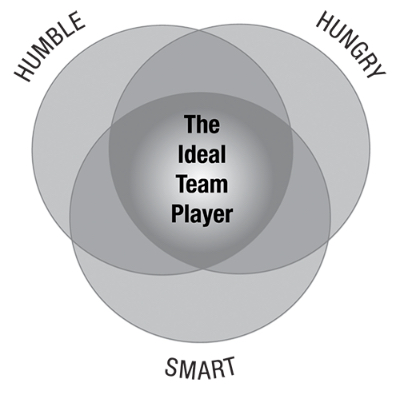By Michael Holland –
The team is not the problem. The team itself is not dysfunctional.
The team didn’t wake up today and say hey, I’m going to be a dysfunctional team.
The team is simply a label being placed on a group of people who together create a entity that can enable tremendous success or disastrous failure. Or maybe it’s more that most teams are just dissatisfyingly mediocre.
The ever influential Patrick Lencioni (of Five Dysfunctions of a Team fame) has a book which sheds great insight on the real problem with our teams: the inadequacy of those on the team.
His book, The Ideal Team Player: How to Recognize and Cultivate the Three Essential Virtues, provides a fresh perspective on the virtues of ideal team players in the format of a business fable. Here’s what I found interesting from his book. . .
- Too many leaders hire for competency and technical skills rather than for fit in the company culture. In Jim Collins Good to Great jargon. . . “getting the right people on the bus.”
- Ideal team players have all three critical virtues: humility, hunger and smarts (no, not that kind of smart, it’s people smarts.) Possessing significant levels of all three virtues enables teamwork.
- Leaders must move themselves to be an ideal team player BEFORE they can recognize and cultivate humble, hungry and smart team members.
Humble Team Players
Humble team players lack excessive ego or concerns about status, are slow to seek attention for their own contributions while being quick to point out those of others.
But, two types of humility-challenged team members to watch out for:
- The Easy One: Those who are overtly arrogant. We all get this one.
- The Hidden One: Those who are lacking self-confidence. They appear humble because they discount their own talents and contributions while being generous to others. But they lack the understanding of their own self-worth. CS Lewis has great insight. . . “Humility isn’t thinking less of yourself, but thinking of yourself less.”
Hungry Team Players
Hungry team players are self-motivated and persistent in looking at the next step, what’s the next opportunity. More to learn, more to do.
A “manageable and sustainable commitment to doing a job well and going above and beyond when it is truly required.” Two bad types of hunger to watch out for:
- All About Me: Those who selfishly direct momentum for themselves.
- Workaholic: Those who lose their whole identity, being fully consumed with work.
Smart Team Players
Smart team players is all about people smarts not at all about intellectual smarts.
Smart team players have a common sense about what’s happening in group settings and how to deal with people in effective ways. They stay engaged in conversations listening rather than thinking about what they will say.
And they ask great questions. Who to watch out for:
- Using Talent for Evil: Those who are interpersonally smart but use this talent for less than good intentions.
The Sweet Spot
The sweet spot: When team players have a significant levels of all three virtues. 
- There are not perfect team players but there are ideal team players. It’s a trend line of growth.
- Non-ideal team players take a disproportionate amount of time and energy from leaders.
The beauty of Lencioni’s perspective is enabling our leadership brains to stay awake seeking ways to improve the experience employees have while working.
We should not focus on the high outcomes which result from ideal team players enabling cohesive teams to excel, but rather we focus on creating the environment that attracts and retains those employees who desire a better way.
Coaching Thoughts – For You and Your Peers
- Are you an ideal team player? Do you want to be?
- Which virtue – humility, hunger, smarts – is the most difficult for you?
- If you were to setup a cohort to read and discuss this book, who among your peers would you invite?






